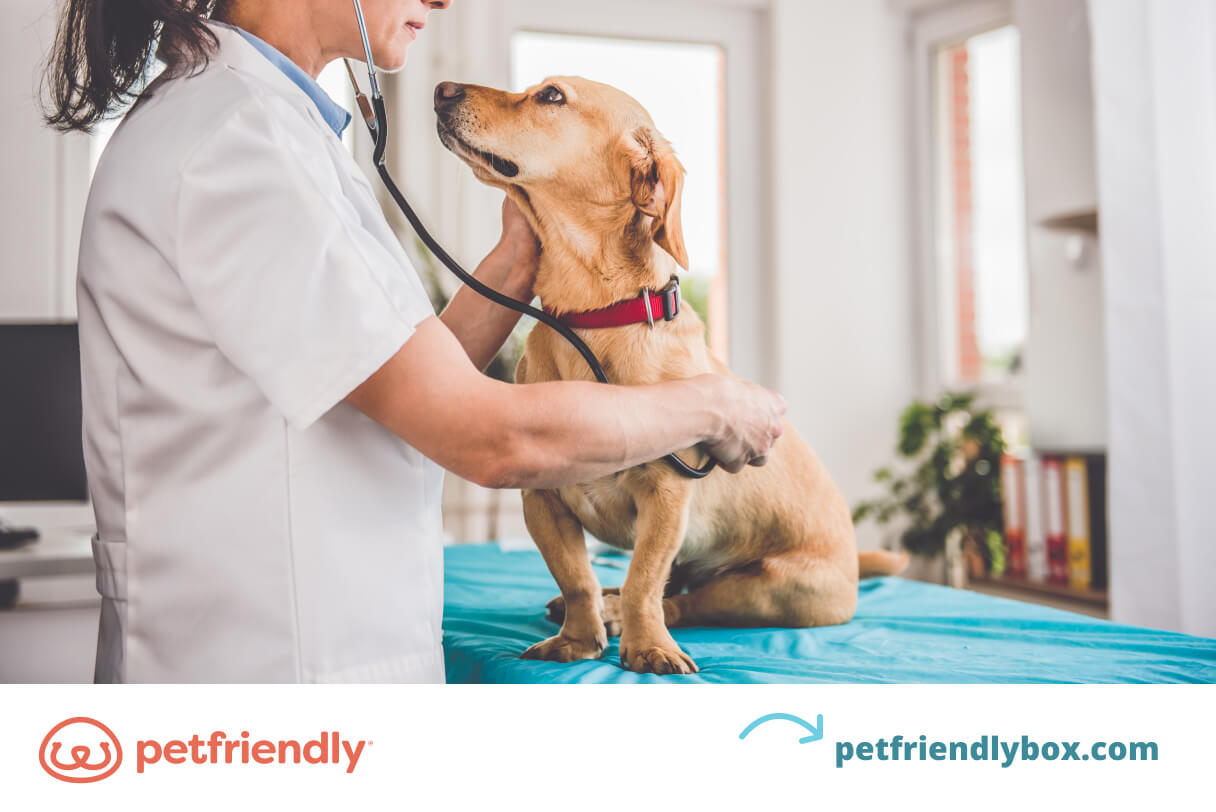When you wake up in the morning, you might welcome kisses from your canine companion. But, that time can be difficult to enjoy if your dog's breath is unbearable.
Bad breath in dogs is a common issue among most dog breeds. Smelly dog breath could be the result of poor dental care or underlying oral health issues. Understanding the root of the problem is the best way to make your pup's mouth and breath stink-free.
In this article we'll cover:
- Reasons why your dog's breath smells
- Causes of bad breath in dogs
- How to treat your dog's bad breath
- Tips for preventing bad breath

Why does my dog have bad breath

Bad breath in dogs can stem from something as simple as diet to serious health issues. The best way to learn where the smell is coming from is by talking to your vet as soon as possible. During a dog check-up, your vet can:
- Examine your pup's mouth
- Look for any sign of disease
- Rule out serious problems
- Share tips to freshen your pooch's breath
5 common causes of your dog's bad breath
It can be really concerning for pet parents to determine the causes of bad breath in their dogs. Here are 5 possible causes of bad breath in your dog, starting with the most common ones.
Oral hygiene
One common cause of bad breath is poor oral health. When your pet eats, their food adheres to their teeth and is lodged along the gum line. There, it can mix with bacteria and form a sticky substance called plaque. Over time, plaque can harden into tartar which is difficult to remove.
Dietary habits
Sometimes, your dog's most recent meal can be the cause of temporary bad breath. Another culprit of stinky breath is decomposing matter from the garbage. This can also be true for pets that eat their own stool or other animal feces.
Periodontal disease
Oral health issues can lead to inflammation of the gums in your furry friend's mouth and gum disease. Dental disease can lead to other fatal infections of the heart, kidneys, or liver.
And unfortunately, some breeds are more susceptible than others. The American Kennel Club states that smaller breeds have a higher risk. This is because their teeth are closer together and more difficult to clean.
Diabetes
If your pet's breath has a sweet smell it could signal diabetes, a condition where blood glucose levels are high. Often, diabetes causes other symptoms like frequent drinking, cloudy eyes, and urinary infections.
Dogs receive a diabetes diagnosis around ages seven to ten, but it can also develop in younger and older dogs. A good treatment plan can help diabetic pups lead full, happy lives and usually includes:
- Diet modification
- Exercise
- Insulin or medication
Kidney disease
If your pup has breath that smells like urine, this could be a sign of kidney disease. This occurs when your dog's kidneys no longer work well and start to accumulate fluid and toxins.
Other symptoms include digestive issues, pale gums, vision problems, and itchy skin. This disease is usually progressive, but treatment can help dogs with kidney-related health issues have a higher quality of life.
Liver disease
Liver disease occurs when a dog's liver is no longer able to remove toxins and process nutrients properly. This can generate an unappealing smell in your canine companion. Other symptoms of liver disease in dogs include loss of appetite, seizure, and swollen abdomen.
How to treat bad breath in dogs

When halitosis is due to poor oral health, your vet may perform a dental cleaning to remove tartar buildup. Make an appointment to discuss your pet's diet, dental care routine, and a plan to treat your dog's bad breath.
To cut dietary sources of bad breath:
- Use trash cans with tight sealing lids and keep them out of your dog's reach
- Store litter boxes away from your dog and clean up animal feces outside
- During walks, keep your pup from eating anything along your path
How to prevent bad breath in dogs
Besides getting your pet's teeth cleaned by a professional, there are other ways to avoid bad breath. Here are a few prevention tips:
Regular tooth brushing.

Knowing how often you should brush your dog's teeth is essential to avoid bad breath and serious dental disease. Experts recommend pet parents use a pet toothbrush and regularly brush at least 2-3 times per week.
Try other dental products.

Giving your pet a dental supplement to remove plaque buildup between brushing and improve the smell. Some examples include dental gel sticks, dental chews, water additives, chew toys, or home remedies like frozen carrots. Select a dental product that is ideal for your dog's breed, size, and age.
Supplement with a vitamin.

Bad breath could be a sign of a vitamin deficiency. Ask your vet about a daily supplement for dogs. Supplements can help by providing the right vitamins and minerals to support overall health.
Maintain a healthy diet.

Diabetes, kidney, liver, and dental diseases aren't entirely preventable. But, a well-balanced diet and regular exercise may lower the risk of a more serious health problem.


